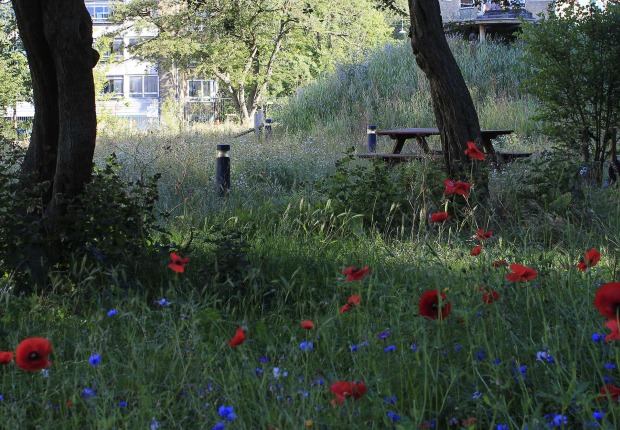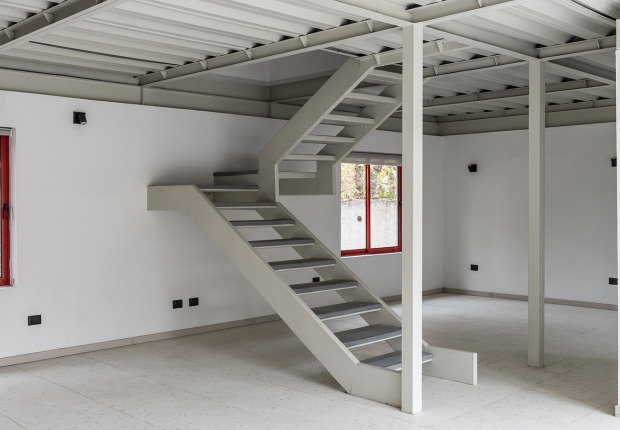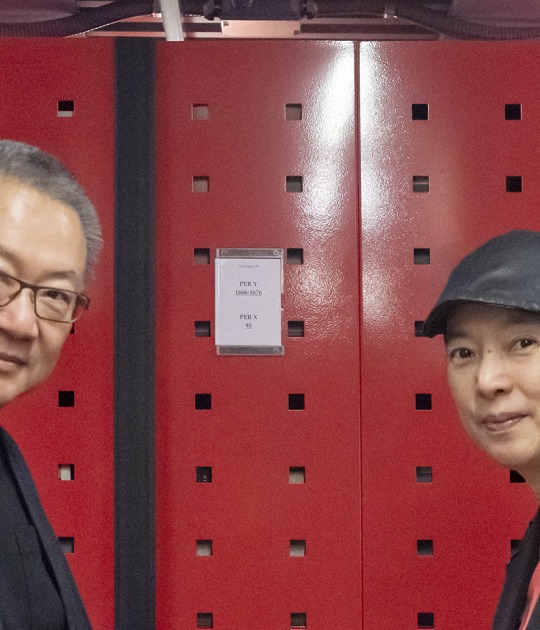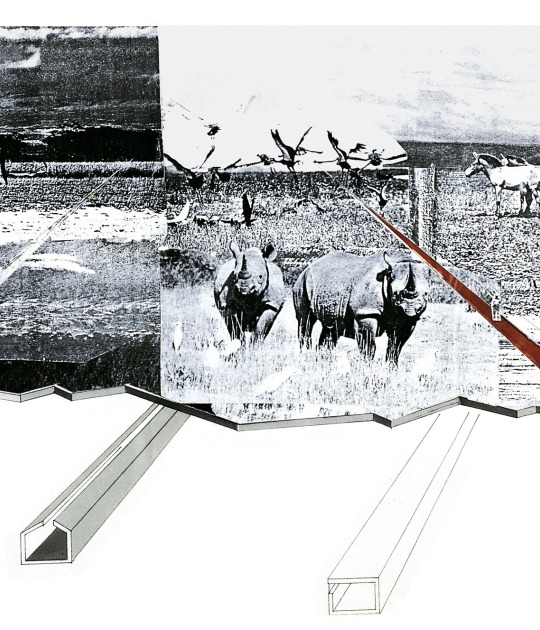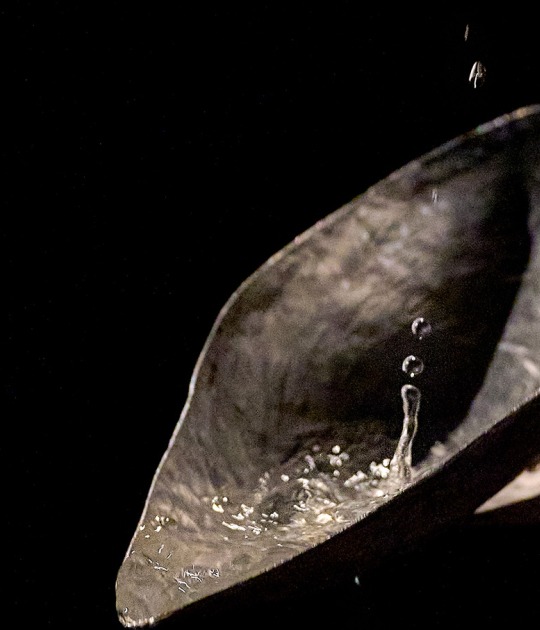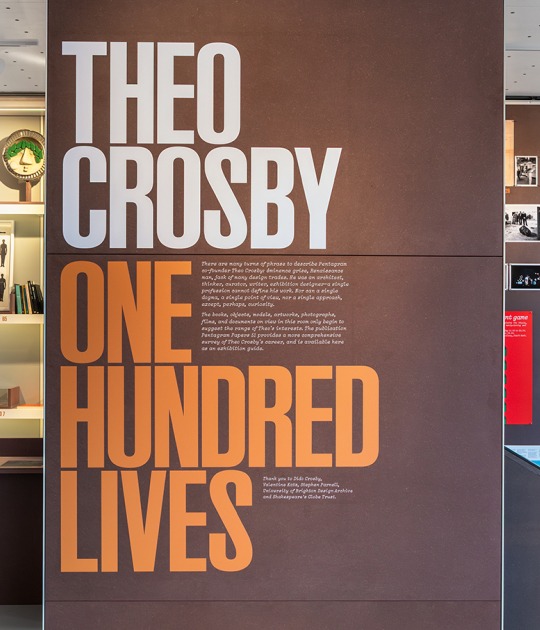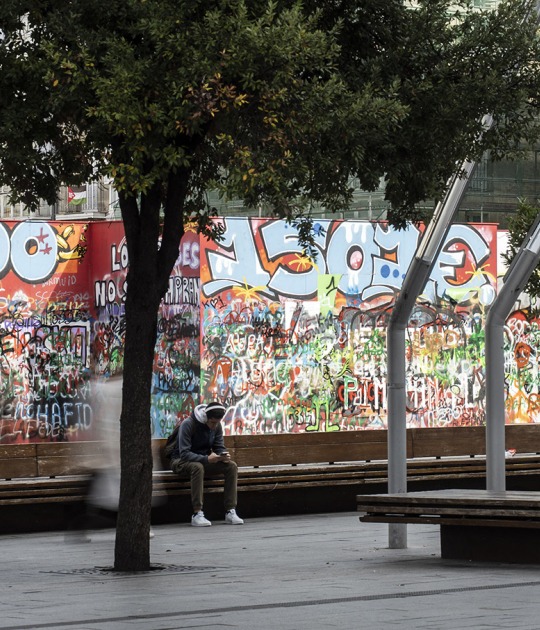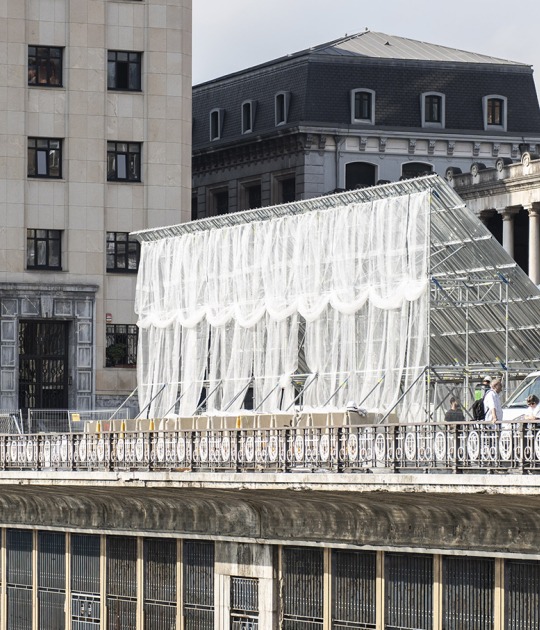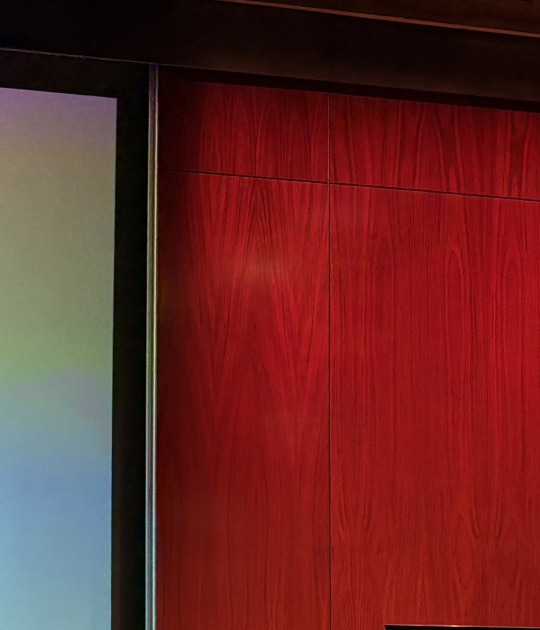Curatorial statement 2019 Chicago Architecture Biennial
...and other such stories
Titled …and other such stories, the 2019 Chicago Architecture Biennial is rooted in close readings of the spatial realities of its host city. Sitting at the crossroads of the Great Plains and the Great Lakes, Chicago has been shaped by planetary forces: colonial expansion, mass migration, extraction economies, and rapid industrialization. Thus, Chicago’s urbanism is inextricable from the flows of people, goods, and capital—and the concurrent exploitation of bodies, labor, and nature—that have contributed to its making. Today, despite the promise of economic development, Chicago, like many other established and emergent global metropolises, faces challenging urban conditions that require the reimagining of forms of exchange between human activity, technology, and the natural world. By extension, owing to its physical geography, Chicago is a singular context in which to address climate and ecological concerns shared by many postindustrial societies.
A city of cultural encounters and differences, Chicago has been shaped by waves of migration from Europe, the American South, and Latin America. Yet its urban fabric displays clear demographic demarcations and acute forms of spatial segregation that have been forged through uneven planning and housing policies. These divisions impact the experiences of residents and visitors today and replicate patterns of social and economic inequity that pervade cities and nation states around the world. The realities of spatial injustice in Chicago co-exist alongside the city’s history as an epicenter of progressive social movements that have often leveraged architecture and public space as sites for social action and advocacy. Chicago is thus an ideal site for investigation of the ways the built space reflects and impacts our understanding of the common, the collective, and the constitutional.
The story of Chicago’s urban evolution is one of many such tales. The city illuminates many key issues confronting architecture and urbanism today, and its stories extend beyond regional and national boundaries to parallel those of other built and natural environments worldwide. Building upon a research-driven approach to historical and contemporary spatial conditions, …and other such stories draws from the complexities and potentialities of Chicago to trace dialogues between various practices and the questions they raise across global communities, cities, territories, and ecologies.
The third edition of the Chicago Architecture Biennial, …and other such stories invites practitioners and the public to engage with architecture and the built environment as prisms through which to reflect upon social, geopolitical, and ecological processes that affect our collective past, present, and future. The exhibition is structured by a series of curatorial frames:
No Land Beyond: Reflects on landscapes of belonging and sovereignty that challenge narrow definitions of land as property and commodity. Taking inspiration from indigenous cosmologies and considering social ecologies as comprising multi-species networks and constituencies, the Biennial thinks through alternative designs and relationships between nature, society, and the built environment.
Appearances and Erasures: Explores sites of memory and the politics of remembering and/or forgetting in contested spaces, considering space as a marker of past and present social imaginaries, visible or otherwise.
Rights and Reclamations: Interprets space—urban, territorial, environmental—as a site of advocacy and civic participation, investigating spatial practices that foreground the rights of humans and nature.
Common Ground: Engages and addresses a constituency of actors and agents invested in developing tactics and methodologies for producing and intervening in public space—both within and beyond the field of architecture.
Presenting practices and projects that include building, design, planning, visual art, policymaking, pedagogy, research, and activism, among others, …and other such stories embraces architecture as an expansive practice that crosses disciplines and scales; engages a broad spectrum of spatial practitioners and publics; and functions across diverse sociopolitical and cultural registers. Extending its reach into the city and across neighborhoods, this project also features collaborations with Chicago-based organizations and communities aimed at fostering conversations that resonate simultaneously at local and global registers. In our current moment of shifting geopolitical alliances, rapid environmental change, and renegotiations of rights and civic life, …and other such stories draws out multiple narratives, perspectives, and positions, opening up arenas of speculation that imagine space and the built environment anew.
The Curators
The curatorial team for the 2019 Chicago Architecture Biennial consists of Artistic Director Yesomi Umolu, a contemporary art curator, and co-curators Sepake Angiama, a curator whose work centers on education, and Paulo Tavares, a Brazil-based architect and academic.
The curatorial team of the Chicago Architecture Biennial has announced the theme of the third edition of the event, to be titled "...and other such stories".
The intentionally-broad theme proposes an investigation of architecture / the built environment not just as a form, but as a culmination of the conditions that shape it. ...and other such stories is a collaborative effort between Artistic Director Yesomi Umolu and co-curators Sepake Angiama (a curator focused on education) and Paulo Tavares (a Brazilian architect and academic).
More information
Published on:
February 7, 2019
Cite:
"Chicago Architecture Biennial releases curatorial statement for 2019, 3th edition " METALOCUS.
Accessed
<https://www.metalocus.es/en/news/chicago-architecture-biennial-releases-curatorial-statement-2019-3th-edition>
ISSN 1139-6415
Loading content ...
Loading content ...
Loading content ...
Loading content ...
Loading content ...
Loading content ...
Loading content ...
Loading content ...
Loading content ...
Loading content ...
Loading content ...
Loading content ...
Loading content ...
Loading content ...
Loading content ...
Loading content ...
Loading content ...
Loading content ...
Loading content ...
Loading content ...
Loading content ...
Loading content ...
Loading content ...
Loading content ...
Loading content ...
Loading content ...
Loading content ...
Loading content ...
Loading content ...
Loading content ...
Loading content ...
Loading content ...
Loading content ...
Loading content ...
Loading content ...
Loading content ...
Loading content ...
Loading content ...
Loading content ...
Loading content ...
Loading content ...
Loading content ...
Loading content ...
Loading content ...
Loading content ...
Loading content ...
Loading content ...
Loading content ...
Loading content ...
Loading content ...
Loading content ...
Loading content ...
Loading content ...
Loading content ...








